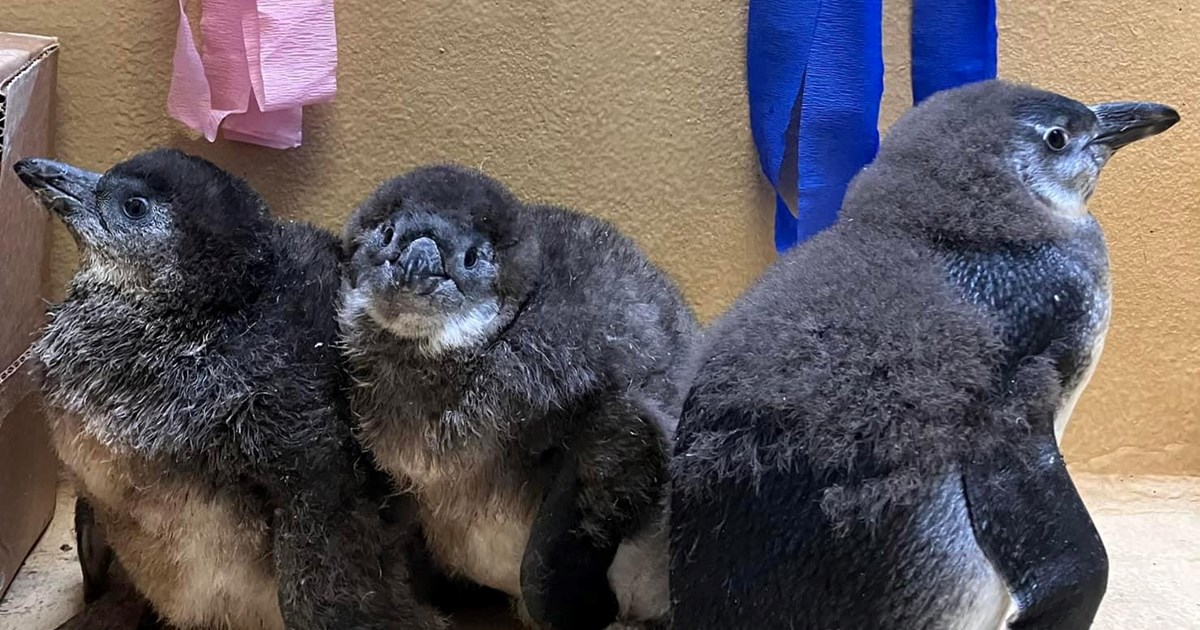
LITTLE ROCK (October 3, 2024) – The Little Rock Zoo is thrilled to announce the successful hatching of not just one, but three African penguin chicks! This achievement represents a major milestone in our ongoing conservation efforts, supported by the Species Survival Plan (SSP), which helps keep zoo populations strong, healthy, and diverse.
Let’s take a closer look at their incredible journey and the dedicated care that made their arrival possible.
The Incubation Process: A Delicate Operation
In the early stages, penguin parents incubate their eggs, but Arkansas’ humid summer can pose challenges for embryo development. To ensure the chick had the highest chance of survival, our team stepped in with artificial incubation for the first chick hatched this year. After the penguin parents incubated the eggs for the first 10 days—a crucial period to improve hatch rates—the egg was moved to an incubator with carefully controlled temperature and humidity.
The incubator becomes the lifeline for the chick. Penguin eggs need to lose 13-17% of their initial weight over 36-42 days, and our team monitors them closely to ensure proper weight loss. Once the hatching process begins, the incubator is converted into a brooder, creating a safe environment for the chick until they were ready to return to their nests.
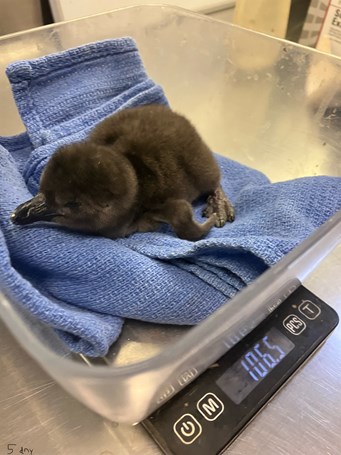
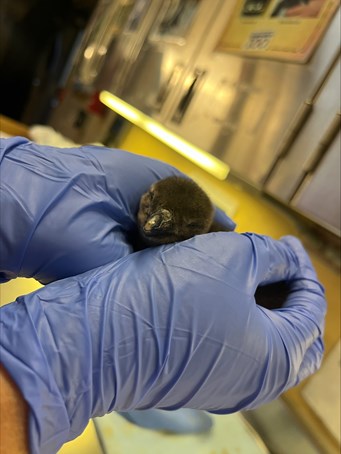
Why Artificial Incubation?
Artificial incubation is especially crucial during the hot, humid summer months, when conditions aren’t ideal for penguin eggs. By providing a stable indoor environment, eggs have the best chance to hatch successfully. In the cooler, fall months, penguin parents typically handle the incubation and chick-rearing themselves.
While the incubation process is vital, it’s only the first step—reuniting the chicks with their parents or introducing them to foster parents is another challenge.
Penguin Parenting: Challenges and Solutions
The biological parents of the first chick, Gable and Bugsy, have had difficulties raising chicks in the past, showing unreliable parenting behaviors like kicking chicks out of the nest. This time, the hope was that things would be different, but unfortunately, they failed to feed the chick properly, leading our team to intervene.
After two unsuccessful attempts to place the chick back with its biological parents, we moved it to foster parents who were ready in another nest. This decision proved successful—the foster parents accepted the chick immediately, offering it the care and attention it needed to thrive.
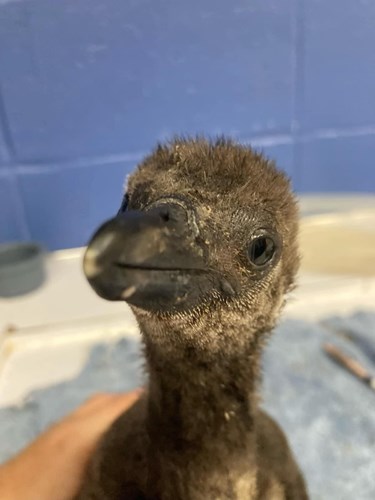
The Super Foster Parents
The foster parents of this chick are none other than its grandparents, Eze and Skipper. Eze, affectionately known as the colony’s “super parent,” has fostered multiple chicks and raised many of his own. His dedication as a parent was clear the moment the chick was placed in his nest—he and his partner provided the care, warmth, and protection that helped the chick grow and thrive. With Eze’s experience and nurturing, the chick has a strong foundation for success.
Joining the Penguin Colony: What’s Next?
Before the chicks can fully join the rest of the penguin colony, they’ll need to reach several important milestones. They must grow their waterproof feathers, learn how to swim, and become familiar with moving on and off exhibit. To help with this transition, we introduce the chicks to adult penguins who serve as “babysitters,” guiding the young birds as they learn the social dynamics of the colony.
After these supervised interactions, the chicks will be ready to join the entire penguin family on exhibit.
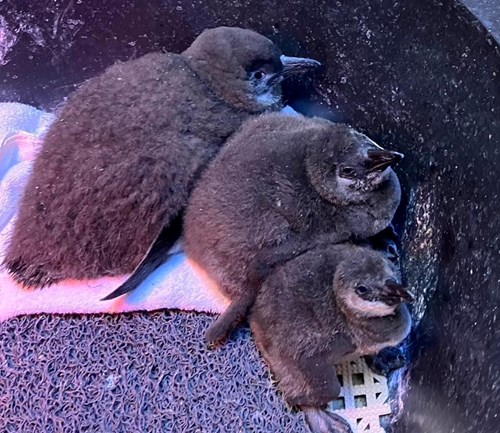
A Rewarding Journey
The successful hatching of these three chicks, including the first artificially incubated penguin chick at the Little Rock Zoo, is a rewarding achievement for our team. Over the years, the Zoo has proudly hatched 16 African penguin chicks. This milestone is a testament to the dedication and expertise of our animal care staff.
We invite you to visit the Zoo and see the chicks for yourself at the Laura P. Nichols Penguin Pointe conservation window. And mark your calendars—on November 30th, we’ll be hosting a special gender reveal for the chicks! Join us to celebrate this exciting milestone and see what the future holds for these new additions to our penguin colony.
Support their Care
Check out our Penguin Chick Amazon Wishlist, where you can find items that support the growth and enrichment of the newest penguins in the colony. Your contributions make a big difference in helping them thrive.
Can’t Get Enough Penguins?
If you love penguins as much as we do, you’ll be excited to learn more about African penguins and the important conservation efforts dedicated to saving this incredible species. Learn more about African penguins and how you can help in their conservation here.
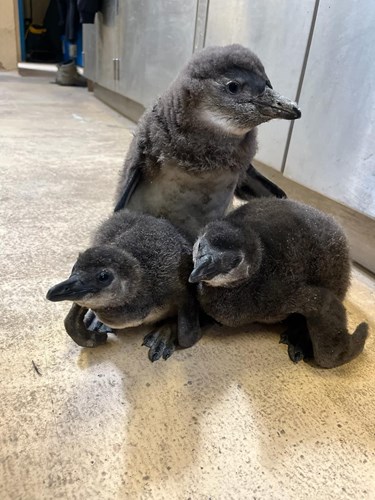
Posted by Misty Waddle & LeeAnn Goette on 21 Nov 2024
About the author
Misty Waddle & LeeAnn Goette
Written by Misty Waddle, with insights from Keeper LeeAnn on the rearing and care of the penguin chicks, which served as the foundation for this post. Edited by Joy Matlock, Zoo Development & Marketing Coordinator.



